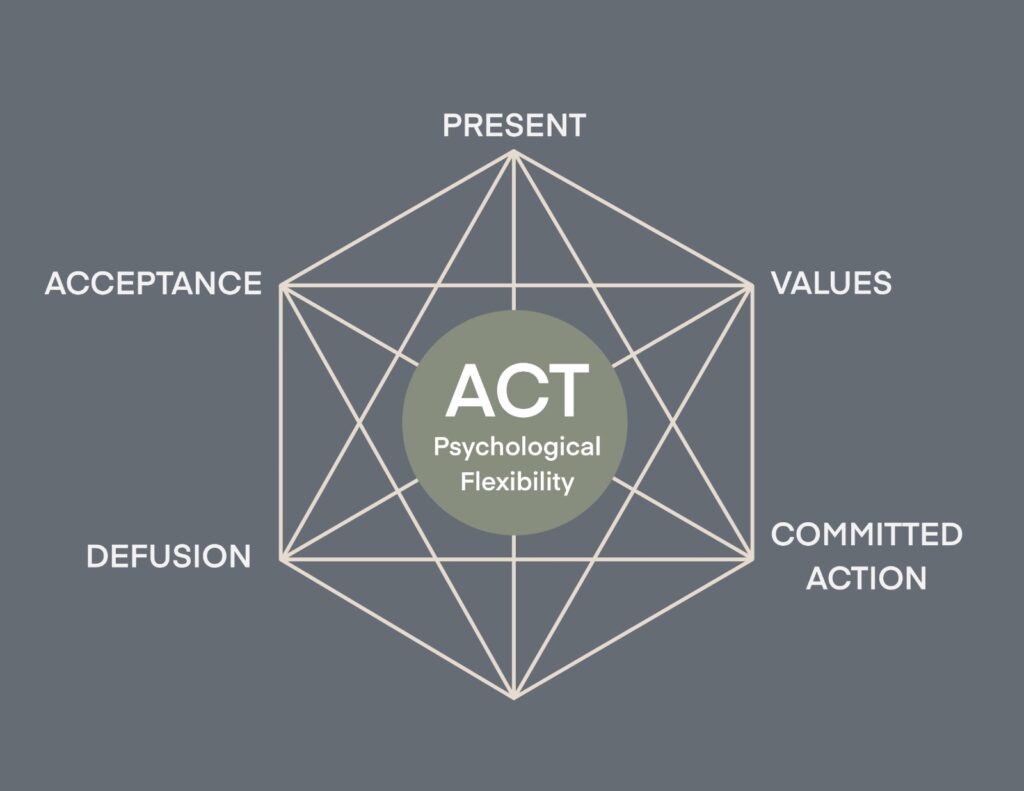

Behr Psychology specializes in Acceptance and Commitment Therapy (ACT). ACT therapy is an innovative and effective therapeutic strategy that helps people accept their thoughts and feelings while committing to behaviors that lead to a fulfilling life. Behr Psychology’s expert psychologists and therapists are committed to offering high-quality acceptance therapy to help you improve your mental health.
Acceptance and Commitment Therapy (ACT) focuses on accepting what is out of your control and taking proactive steps to improve your mental health. By combining mindfulness techniques and behavioral strategies, ACT therapy enables you to be present and completely engaged. This method is very effective for people coping with anxiety, depression, stress, and other emotional challenges.
At Behr Psychology, we offer a personalized approach to address your needs and concerns. Our psychologists and therapists tailor acceptance therapy strategies to meet your specific needs, compassionately guiding you through the ACT process and helping you understand the importance of acceptance and commitment in creating a fulfilling life. ACT therapy aims to help you develop cognitive flexibility and a growth mindset, enabling you to respond to life’s challenges with resilience and clarity.
Our approach includes cognitive behavioral therapy (CBT), which has proven effective in treating postpartum depression and anxiety.
Behr Psychology offers Acceptance and Commitment Therapy (ACT) if you’re looking for effective mental health treatment. Our skilled therapists are here to help you take meaningful steps towards a healthier and happier life. At Behr Psychology, we offer in-person consultations at our Midtown West and Upper West Side offices and online sessions for those in New York, New Jersey, Connecticut, Florida, South Carolina, and California.
Contact us today to set up an appointment and learn more about how ACT therapy can benefit you.
You can learn to identify and change negative thought patterns through CBT, helping you manage your symptoms more effectively.
In addition to therapy, we recommend incorporating self-care practices such as exercise, mindfulness meditation, and a healthy diet. Social support from friends, family, or support groups can also be invaluable.